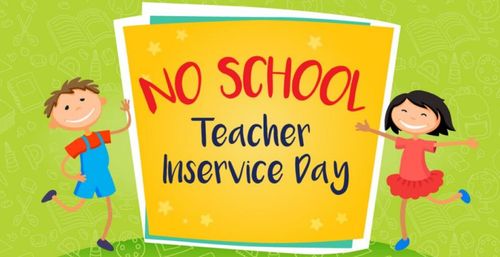
Montessori Education Vs. Daycare
When it comes to early childhood education, parents are faced with a variety of choices. Among these, Montessori education stands out as a powerful alternative to traditional daycare settings that focus solely on play-based learning. While play is undeniably valuable, the Montessori approach integrates purposeful play with guided learning experiences that nurture the child’s academic, social, and emotional development. Here’s a closer look at why Montessori might be the right choice for your child, backed by research and statistics.
1. Enhanced Cognitive Development
Montessori environments are carefully designed to foster independent learning and cognitive growth. In a landmark study, Lillard and Else-Quest (2006) found that children in Montessori programs performed better in both math and literacy compared to children in play-only daycare programs. The structured environment, freedom within limits, and hands-on learning materials in Montessori classrooms allow children to develop foundational academic skills in an engaging, low-pressure setting. Montessori children in this study also demonstrated higher levels of "executive function," the set of cognitive skills that includes working memory, flexible thinking, and self-control.
Statistic to consider: In a study published in Science, Montessori students in the U.S. scored significantly higher on academic assessments than their counterparts in traditional daycare (Lillard & Else-Quest, 2006). This shows that a Montessori education may better prepare children for future academic success.
2. Development of Social and Emotional Skills
Social and emotional development is another area where Montessori shines. Montessori classrooms emphasize respect, cooperation, and empathy, guiding children to interact positively with others. Lillard and Else-Quest (2006) also found that Montessori students displayed more positive peer interactions and had fewer instances of rough play compared to children in play-only daycare settings. By fostering a sense of community, children learn important social skills that contribute to emotional well-being and conflict resolution.
Statistic to consider: Montessori students showed higher levels of social maturity, empathy, and cooperative behaviors (Lillard & Else-Quest, 2006). These skills contribute to a child’s confidence, resilience, and ability to form positive relationships, which benefit them well beyond preschool.
3. Promotion of Independence and Intrinsic Motivation
A key component of the Montessori method is fostering independence and intrinsic motivation. Rather than guiding children toward external rewards, Montessori educators support each child’s natural curiosity, allowing them to choose activities and pursue interests. According to a study by Rathunde and Csikszentmihalyi (2005), Montessori students demonstrated a greater sense of well-being, intrinsic motivation, and engagement in their tasks than those in traditional or play-only daycare settings. This intrinsic motivation is vital, as it lays the foundation for a lifelong love of learning.
Statistic to consider: Rathunde and Csikszentmihalyi (2005) found that Montessori students reported higher levels of engagement, interest, and joy in learning activities compared to children in non-Montessori environments, indicating that Montessori education cultivates a deeper connection to learning.
4. Focus on Whole-Child Development
Montessori education recognizes that young children benefit from more than just academic or physical play-based learning. Montessori classrooms cater to the "whole child," focusing on social, emotional, physical, and cognitive growth. Research by Dohrmann et al. (2007) suggests that children who attended Montessori programs scored higher on standardized tests in reading and math, but perhaps more importantly, they also scored higher on measures of executive function and self-regulation. This balanced focus prepares children for future school years and beyond, encouraging them to develop into well-rounded individuals.
Statistic to consider: Dohrmann et al. (2007) showed that Montessori students exhibited advanced executive function skills, such as planning, self-control, and flexible thinking, compared to those in play-only daycare environments.
5. Long-Term Benefits
The advantages of a Montessori education extend beyond the preschool years. Research indicates that Montessori students often maintain an academic edge in later grades, thanks to the foundation they build early on. In addition to academic preparedness, the Montessori approach instills resilience, adaptability, and confidence—traits that are crucial in a rapidly changing world. Montessori students are empowered to think critically, work collaboratively, and approach new challenges with an open mind.
Statistic to consider: A longitudinal study demonstrated that former Montessori students showed greater academic success in reading and math well into middle and high school (Dohrmann et al., 2007), suggesting that Montessori offers a long-lasting academic advantage.
Conclusion
While play-based daycare can provide a fun and engaging environment, Montessori education offers a structured yet flexible approach that goes beyond play to support each child’s cognitive, social, and emotional growth. With a well-rounded foundation rooted in independence, empathy, and a love for learning, Montessori students are equipped to succeed not only academically but also in their interpersonal relationships and future endeavors.
References
Dohrmann, K. R., Nishida, T. K., Gartner, A., Lipsky, D. K., & Grimm, K. J. (2007). High school outcomes for students in a public Montessori program. Journal of Research in Childhood Education, 22(2), 205-217.
Lillard, A. S., & Else-Quest, N. (2006). The early years: Evaluating Montessori education. Science, 313(5795), 1893-1894. doi:10.1126/science.1132362
Rathunde, K., & Csikszentmihalyi, M. (2005). Middle school students' motivation and quality of experience: A comparison of Montessori and traditional school environments. American Journal of Education, 111(3), 341-371.






























